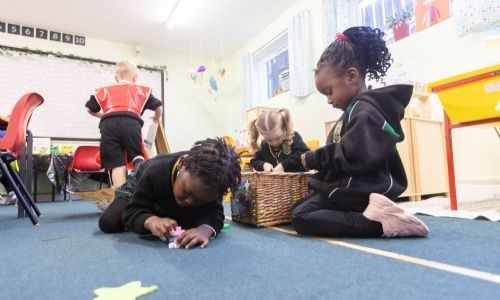
The Magic of Learning: Why Starting Young Matters

Unlocking the potential of early childhood education can shape a child's future in profound ways.
Early childhood education is more than just a good start—it’s a head start that can lead to a lifetime of discoveries and success.
The Foundation of Lifelong Learning
The early years of a child's life are crucial for laying the foundation of lifelong learning. During this period, children are like sponges, absorbing information and experiences from their surroundings at an astonishing rate. Establishing a solid educational foundation early on can foster a love for learning that endures throughout their lives.
Starting young helps children develop essential skills such as critical thinking, problem-solving, and creativity. These skills not only prepare them for academic success but also equip them to face life's challenges with confidence and resilience.
Cognitive and Social Benefits of Early Education
Early childhood education offers numerous cognitive benefits. It enhances brain development by stimulating neural connections through diverse activities that involve language, mathematics, and sensory exploration. Children who engage in early educational programs tend to have better attention spans, memory retention, and reasoning abilities.
Furthermore, early education significantly influences social development. It provides children with opportunities to interact with peers, learn to share, cooperate, and resolve conflicts. These social skills are crucial for building healthy relationships and adapting to various social environments as they grow older.
Importance of Play-Based Learning
Play-based learning is a powerful approach to early education that harnesses the natural curiosity and energy of children. Through play, kids explore their world, experiment with ideas, and develop a deeper understanding of their surroundings. This method promotes active engagement, which is far more effective than passive forms of learning.
Play-based learning also encourages physical development, as children engage in activities that enhance their motor skills. Moreover, it nurtures emotional growth by allowing kids to express their feelings, develop empathy, and build self-regulation skills.
Creating an Inclusive and Stimulating Environment
An inclusive and stimulating environment is vital for maximising the benefits of early education. Such an environment should cater to the diverse needs and abilities of all children, providing equal opportunities for learning and growth. It should be rich in resources, including books, toys, art supplies, and technology, to stimulate curiosity and exploration.
Creating a safe and nurturing atmosphere where children feel valued and supported is equally important. When children feel secure, they are more likely to take risks in their learning, ask questions, and engage fully in educational activities.
Role of Parents and Educators in Early Development
Parents and educators play a pivotal role in early childhood development. Parents are a child's first teachers, and their involvement in early education can significantly enhance learning outcomes. Simple activities like reading together, playing educational games, and encouraging curiosity can make a huge difference.
Educators, on the other hand, bring expertise and structured learning experiences to the table. They design curricula that cater to developmental stages and individual needs, ensuring that each child receives the support they need to thrive. Collaboration between parents and educators is essential for creating a cohesive and effective learning experience for young children.
So, why wait? Let's make learning a joyful and fruitful journey for our children from the very start!
To learn more about life at Little Crickets Sunderland email [email protected] or book a tour here.
